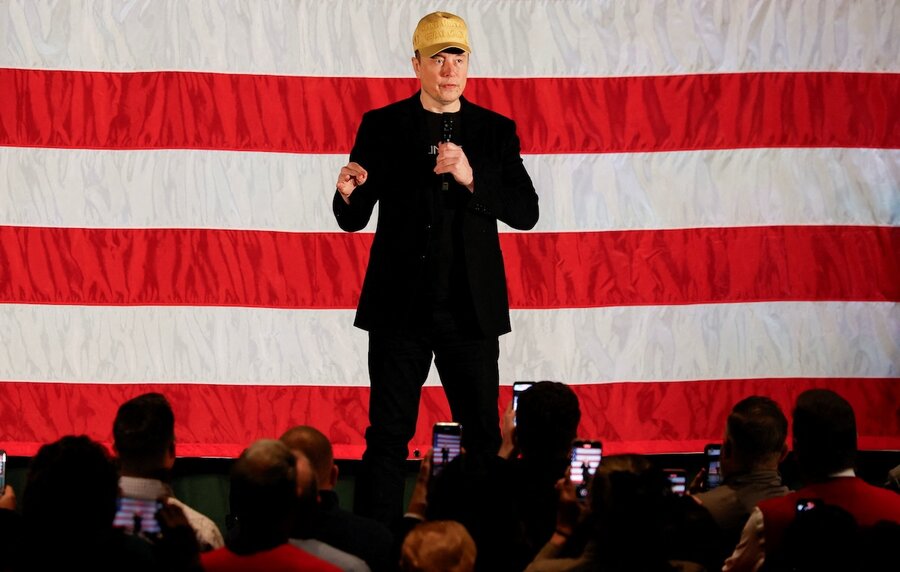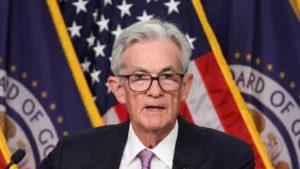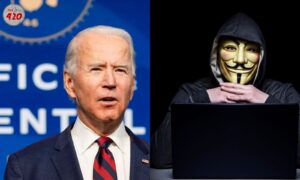
Musk swing-state giveaway has become a focal point of controversy as Election Day nears, with a judge declining to halt Elon Musk’s $1 million daily giveaways targeting swing states. Through his social media platform, Musk launched this initiative, sparking widespread debate about its potential influence on voter behavior and the ethical implications surrounding it. Critics argue that it may sway voters, while supporters see it as a legitimate effort to engage citizens.
Details of Musk’s Swing-State Giveaway Program
The Musk swing-state giveaway operates through Musk’s social media platform, where users in pivotal swing states can participate in daily giveaways worth $1 million each. Musk, a tech mogul and CEO of multiple companies, promoted the campaign as a way to incentivize voter engagement in key regions. These giveaways consist of cash prizes, and Musk claims the initiative is a non-partisan attempt to encourage political participation without direct endorsements of candidates or policies.
According to Musk, his giveaways aim to empower citizens and stimulate political conversation without dictating specific choices. However, the timing and targeted nature of the campaign raise concerns that it could influence election outcomes by disproportionately benefiting individuals in swing states, where elections tend to be tightly contested.
Judicial Decision: Judge Declines to Block Giveaway
Despite controversy, a judge recently ruled that the Musk swing-state giveaway can continue, dismissing attempts to block it on grounds of alleged election interference. The judge reasoned that Musk’s giveaways do not constitute a direct form of electoral manipulation or illegal activity, as there is no explicit endorsement of candidates or parties. The court recognized the First Amendment implications, stating that the giveaway program falls under free speech and expression.
Legal analysts highlight that while the program may indirectly affect voter sentiments, it does not meet the legal threshold for interference. As long as Musk refrains from promoting specific political stances or candidates, the giveaways are legally permissible. Nonetheless, the ruling has sparked discussions about the ethical boundaries of influential figures engaging in high-stakes giveaways that might sway voter opinions.
Impact on Swing States and Voter Behavior
The Musk swing-state giveaway specifically targets swing states like Pennsylvania, Arizona, and Georgia, where election outcomes are often decided by narrow margins. This strategy of focusing on these battleground states could potentially shift undecided or disengaged voters by creating financial incentives to participate.
Some political analysts argue that such giveaways could indirectly create biases among recipients, potentially swaying their views in a particular direction. For example, individuals who win substantial cash prizes may feel an implicit loyalty toward Musk or his platform, potentially influencing how they perceive issues and candidates aligned with his interests. This raises questions about the psychological effects of financial incentives on voter attitudes.
Polling data has not yet shown measurable shifts due to the giveaways, but there is concern among political scientists that even minor influences in swing states could cumulatively alter close races. Opponents argue that allowing wealthy individuals to run initiatives in battleground states could set a precedent where financial incentives, rather than policy, become tools of political influence.
Ethical Concerns Surrounding the Musk Swing-State Giveaway
Ethical concerns surrounding the Musk swing-state giveaway focus primarily on the implications of a billionaire using financial incentives near Election Day. Critics argue that Musk’s initiative blurs the line between non-partisan civic engagement and subtle voter manipulation. Although there is no direct endorsement of any party or candidate, the sheer financial power behind the campaign could impact how individuals perceive Musk and his enterprises, possibly leading to an imbalance in public opinion.
Some political ethics experts suggest that this approach, while legally permissible, could erode democratic norms by injecting private capital into the political landscape in a way that feels transactional. By linking voter engagement with large cash prizes, Musk’s giveaway may inadvertently promote the notion that political participation is incentivized by personal gain rather than civic duty. Moreover, critics fear that such practices may encourage other high-profile individuals or corporations to engage in similar giveaways, thereby increasing the risk of financial influence on elections.
Public Reaction and Social Media Discourse
Public reaction to the Musk swing-state giveaway has been mixed. Some social media users appreciate the initiative, viewing it as a refreshing approach to engaging citizens. Supporters argue that Musk’s strategy brings excitement to the election season and encourages people who may otherwise feel apathetic toward politics to participate in the democratic process.
On the other hand, detractors argue that Musk’s giveaways create an uneven playing field, leveraging his immense wealth to sway voter perceptions. Social media platforms have seen heated debates, with some users accusing Musk of veiled political motives, while others defend the initiative as a harmless means of stimulating interest. The polarizing responses highlight a broader conversation about the role of wealthy influencers in shaping public opinion and whether such practices are consistent with democratic values.
Potential Implications for Future Elections
The Musk swing-state giveaway raises important questions about the future of election campaigns and the role of social media platforms. As tech CEOs and influencers gain unprecedented reach and influence, there is a growing need for ethical and legal frameworks to address new forms of voter engagement that may not fit traditional definitions of campaigning.
Some political scientists predict that Musk’s initiative could pave the way for more financially-driven campaigns in which private capital plays a central role in voter outreach. This could lead to a new era where political engagement is intertwined with social media dynamics and large-scale financial incentives. There is a call among some lawmakers for clearer regulations on election-related financial activities by public figures, arguing that the practice of offering financial incentives in swing states should be scrutinized to prevent potential abuses.
Looking Ahead: Balancing Influence and Democracy
The Musk swing-state giveaway ultimately brings to light the delicate balance between influence and democracy. While the court’s decision to allow the initiative underscores the importance of free expression, it also raises awareness of how financially motivated campaigns could alter voter perspectives. As Election Day approaches, the long-term effects of Musk’s giveaways remain uncertain, but the controversy has already ignited a broader conversation about the intersection of wealth, technology, and democracy.
For now, the giveaway continues, with participants eagerly waiting for their chance to win while voters and policymakers consider its broader implications. This election season may serve as a pivotal moment in redefining how financial incentives and social media engagement impact the electoral process.
Musk’s initiative demonstrates the growing influence of high-profile individuals on the electoral landscape and highlights the challenges of regulating financial influence in the age of social media. As the Musk swing-state giveaway proceeds, it will likely continue to draw attention and debate, shaping conversations about democratic principles and the boundaries of influence in American politics.
image credit – Rachel Wisniewski/Reuters


